How to build your HKDSE vocabulary (5 steps)

How to build your HKDSE vocabulary (5 steps) One of the major keys to success in the English DSE is the ability to understand, recall and use a wide variety of English words. In fact, I would say it is the determining factor in order to achieve a high score. Of course, there are other skills […]
Free Tips: Secondary School Interviews

FREE Tips: Secondary School Interviews Secondary School Interview Tips and why some children need training. In the next few months, P.6 students from primary school all across Hong Kong will be attending interviews to compete for limited seats in top schools. Do you know what your child needs to do in order to impress their […]
Hong Kong Speech Festival – Solo Verse Tips and Advice

Hong Kong Speech Festival – Solo Verse Tips and Advice The Hong Kong Speech Festival (English speech) is upon us again and that means a lot of students are preparing for their solo verses. As usual, the poems require the students to immerse themselves in the poet’s words and showcase their ability to convey emotions […]
Vocabulary Time! Primary School List #2
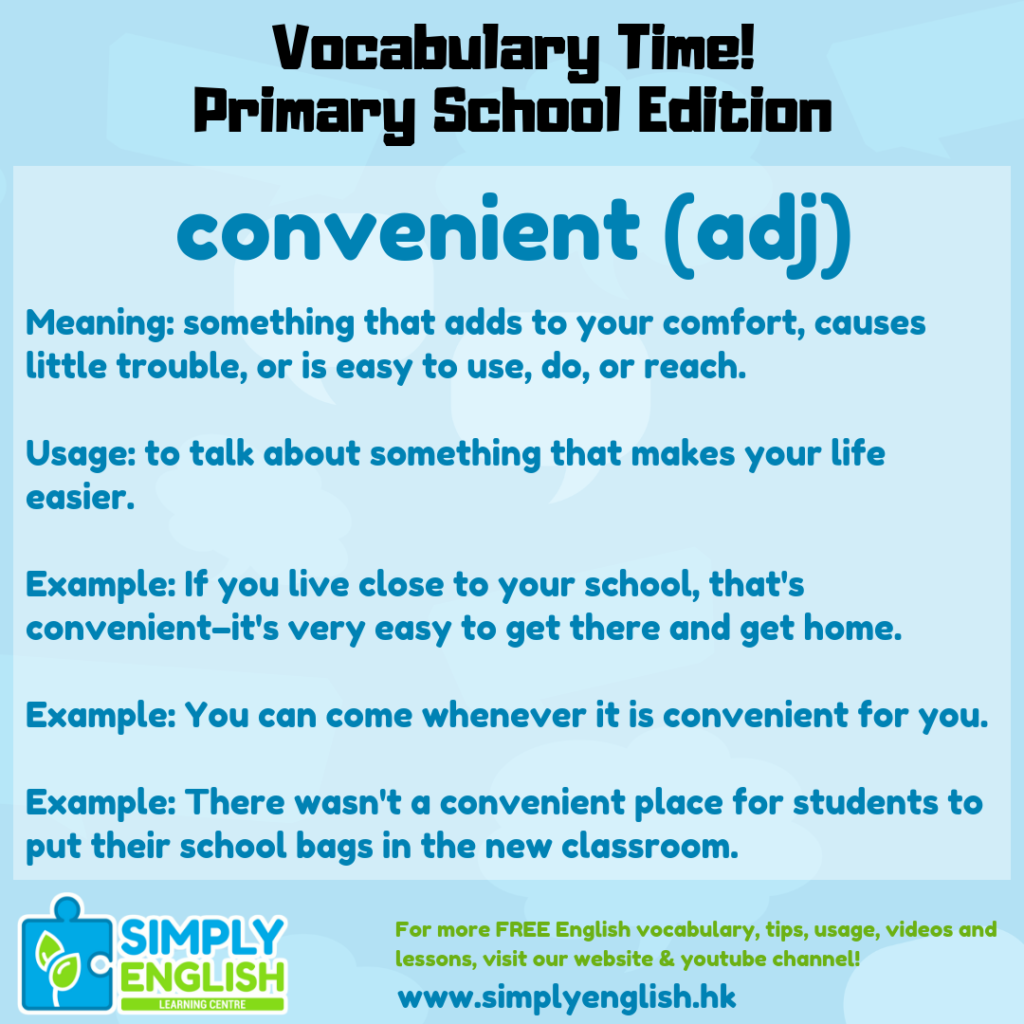
Vocabulary Time! Primary School List #2 convenient (adj) Meaning: something that adds to your comfort, causes little trouble, or is easy to use, do, or reach. Usage: to talk about something that makes your life easier. Example: If you live close to your school, that’s convenient–it’s very easy to get there and get home. Example: You can […]
Vocabulary Time! Secondary School List #3
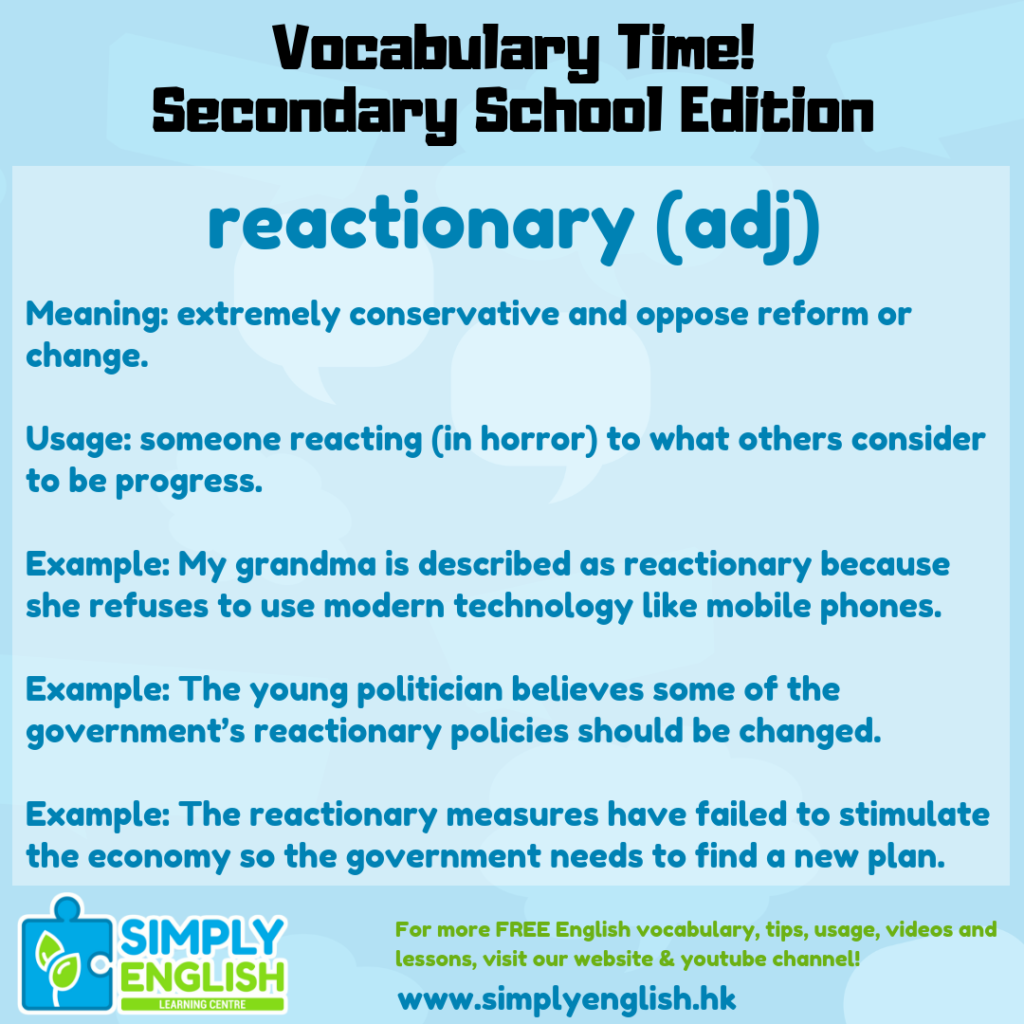
Vocabulary Time!Secondary School List #3 reactionary (adj) Meaning: extremely conservative and oppose reform or change. Usage: someone reacting (in horror) to what others consider to be progress. Example: My grandma is described as reactionary because she refuses to use modern technology like mobile phones. Example: The young politician believes some of the government’s reactionary policies should […]
100+ Most important words for DSE English

HKDSE – 100+ Most Important words for DSE English Some students need a jumpstart in learning vocabulary. This list of words provided FREE is a great way to check your vocabulary proficiency in English. This list of words are duplicates found in the Paper 1 English DSE which means that they appeared in either the […]
Vocabulary Time! Secondary School List #2
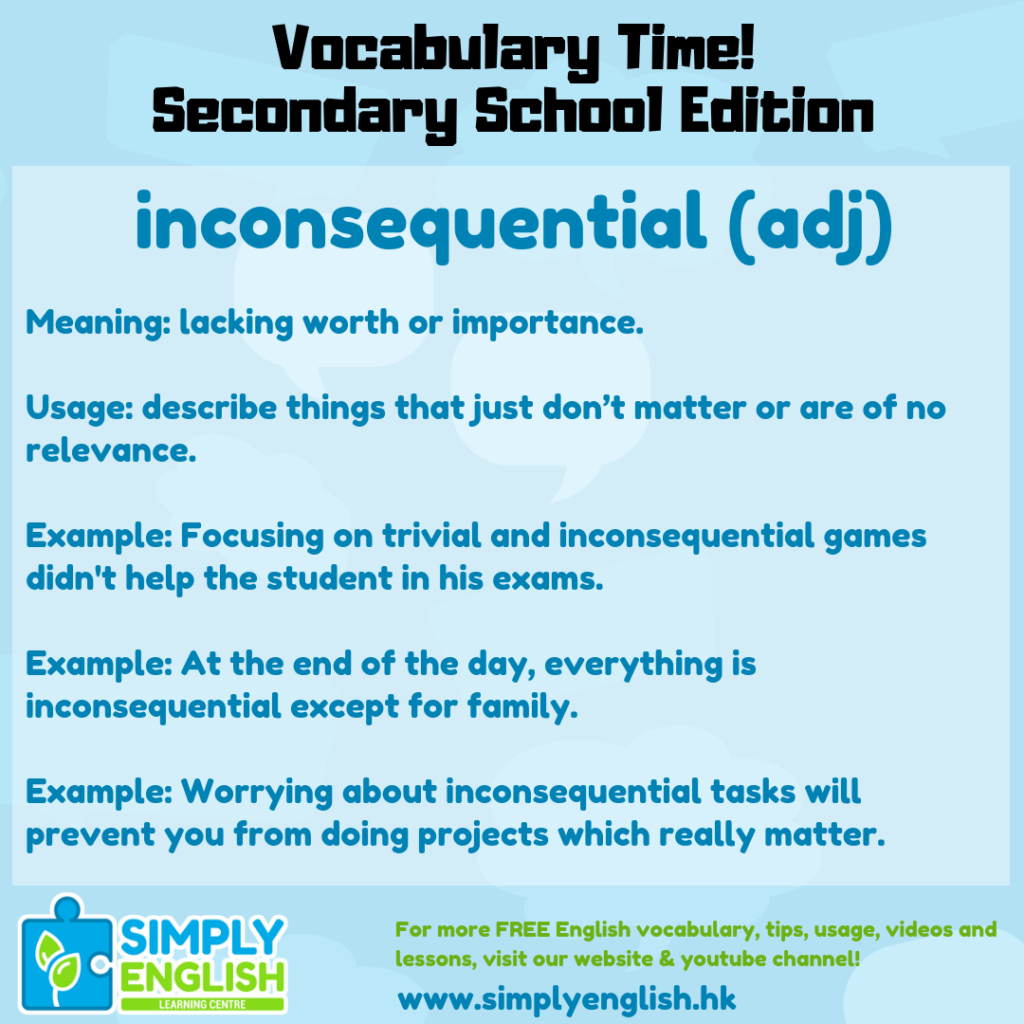
Vocabulary Time!Secondary School List #2 rudiment (noun) Meaning: the basics or the elementary stages of a subject or skill. Usage: usually used in the plural and when talking about the easiest and most basic parts of something. Example: People often learn the rudiments of cooking from their mothers, but they won’t become experts until they […]
FREE Tips for DSE English
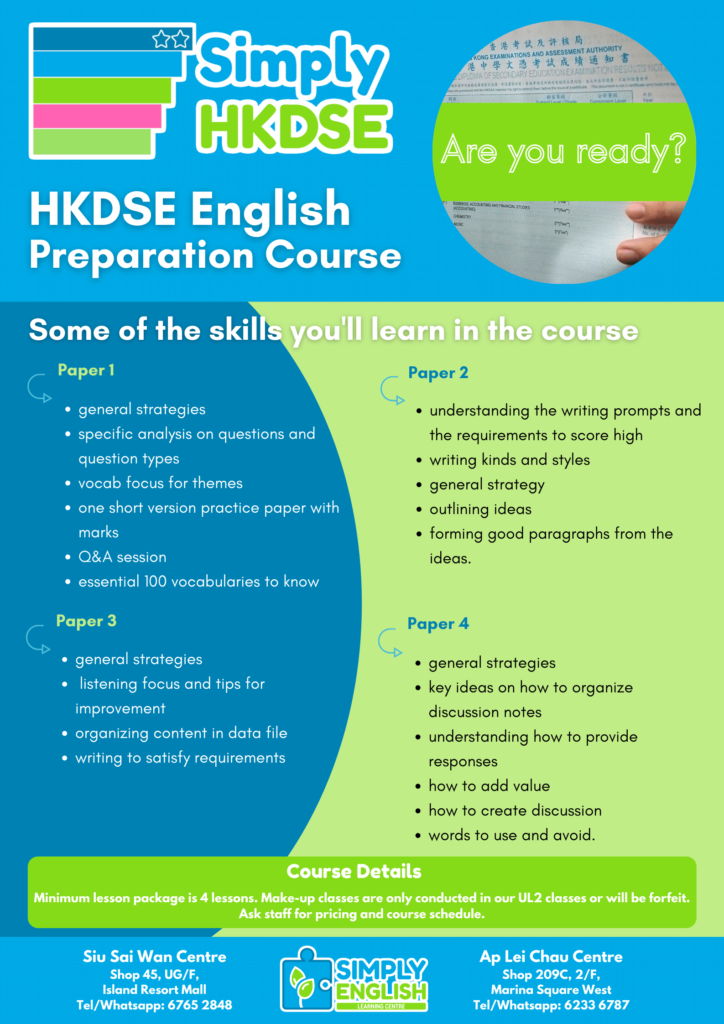
HKDSE English Prep Course – Three FREE Tips Tip 1: Stay up-to-date with current news and topics. This may seem like a “no-brainer,” but it’s hard to achieve in a busy study schedule. Find time to read the news. Tip 2: If you find that there is more than one word you don’t know in […]
Vocabulary Time! Secondary School List #1
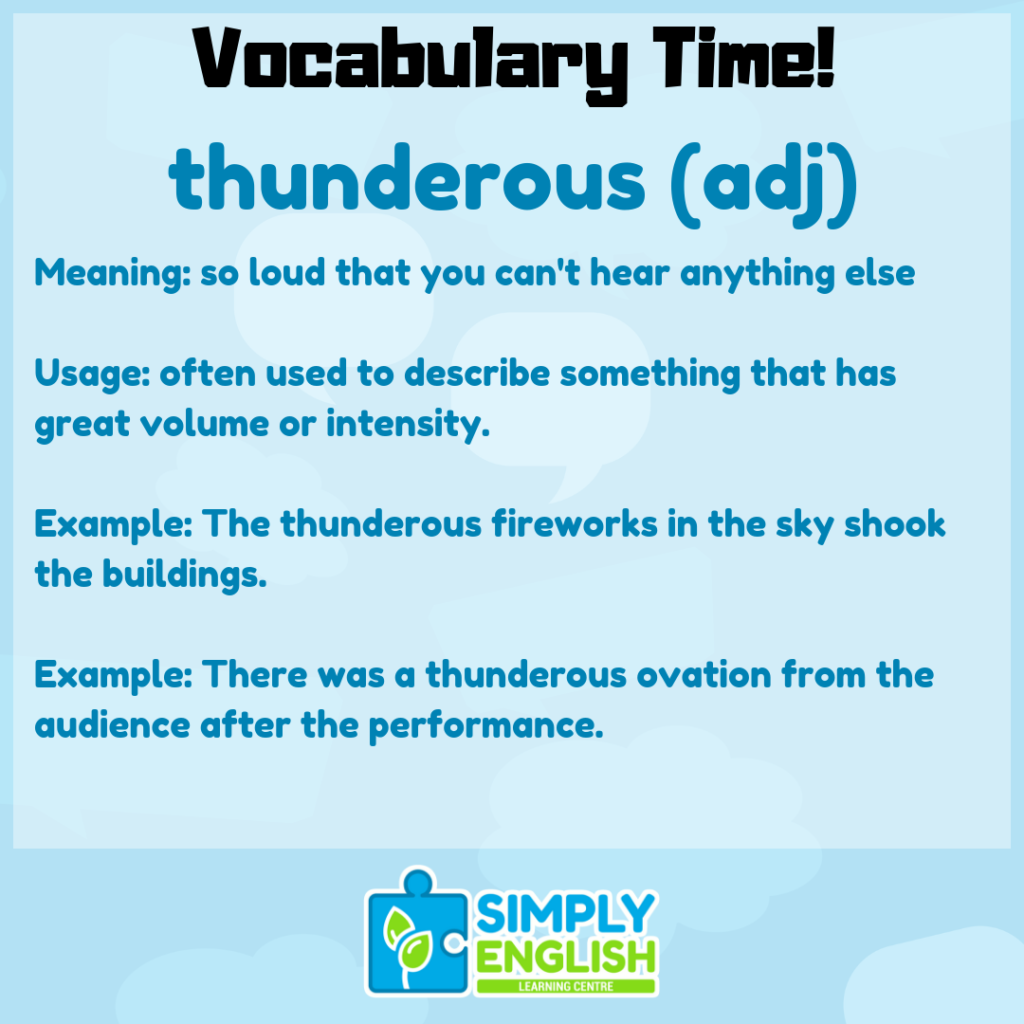
Vocabulary Time! Secondary School List #1 eavesdrop (verb) Meaning: to listen without the speaker knowing. Usage: often used when someone is listening to a conversation secretly. Example: The jealous husband eavesdropped on his wife’s conversations. Example: In this day and age, it’s hard not to eavesdrop on someone talking loudly on their mobile phone. Example: […]
British vs American English Series
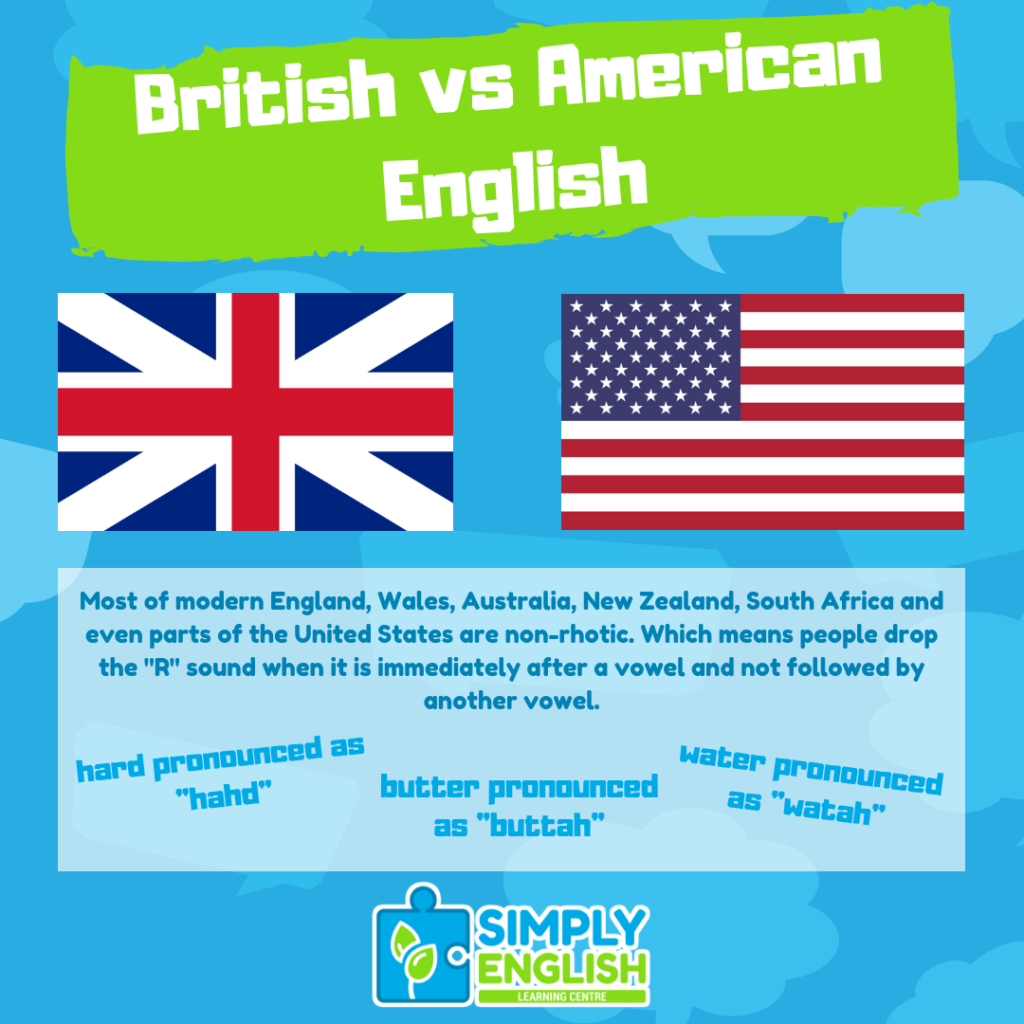
British vs American English Series You might know that there are differences in spelling between the two countries, but did you know there are different meanings to common words that are often confused. Can you tell which ones are British and which ones are American? biscuit = cookie trunk = boot flat = apartment pants […]
